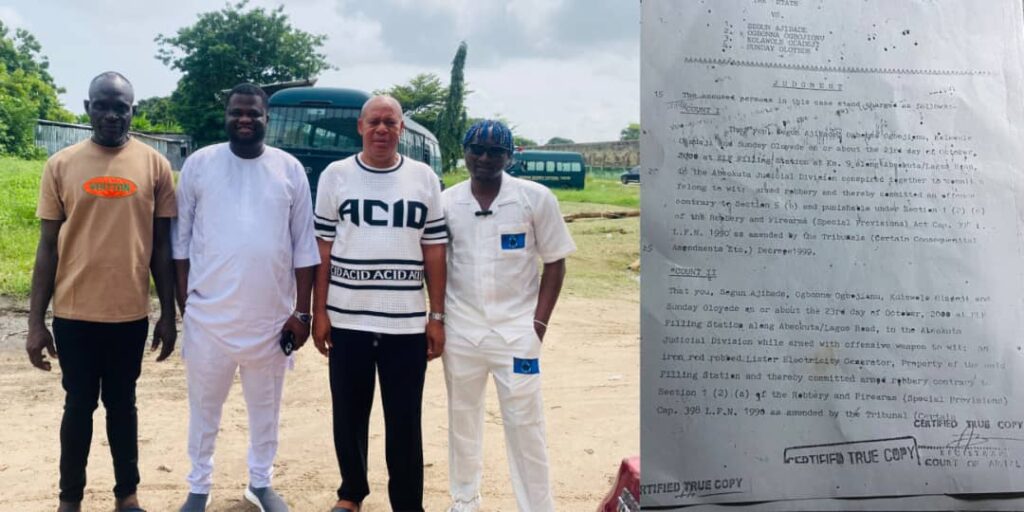After more than two decades on death row, a 64-year-old Nigerian technician, Kolawole Oladeji, has regained his freedom in a dramatic turn of events, bringing closure to one of Nigeria’s most controversial criminal convictions.
Oladeji, who was convicted and sentenced to death in 2003 over the alleged theft of a generator, walked out of Kirikiri Maximum Security Prison in Lagos on Tuesday, alongside his co-accused, Ogbona Igbojionu.
The duo’s release followed persistent public advocacy, particularly from popular TikTok personality, Olumide Ogunsanwo, also known as Seaking, who spotlighted their case and mobilised public sympathy that eventually led to government intervention.
Oladeji, a generator repair technician, was arrested on October 30, 1999, after a generator—said to have been stolen by another party—was brought to his workshop for repairs.
Despite his consistent claims of innocence, he was charged with theft and armed robbery, and eventually sentenced to death by hanging on January 14, 2003.
Speaking in an earlier audio message obtained by journalists, Oladeji narrated his ordeal: “I am a generator repairer.
Someone brought a generator for repair. After fixing it, another person picked it up. I didn’t rob anyone. I was just doing my job.”
He lamented that the individual he alleged was the real culprit—Segun Ajibade—was released in 2016 by the then Governor of Ogun State, Senator Ibikunle Amosun, allegedly due to political connections and influence.
“Since then, I have been left behind. My mother died. My wife died too. I’ve been here alone,” he said with a voice laden with grief.
Oladeji and his co-convicts—Igbojionu, Sunday Oloyede, and Ajibade—were all sentenced in the same case.
However, Ajibade’s release, allegedly under executive clemency, left the others languishing in prison.
Oladeji’s efforts to seek redress through the legal system met a brick wall. In March 2018, his appeal at the Court of Appeal in Ibadan was dismissed after his lawyer filed a notice of withdrawal.
He later wrote to Ogun State Governor, Dapo Abiodun, in 2020, pleading for clemency and narrating his ordeal.
“I am pleading for total pardon and freedom so that I can reunite with my family. I promise never to disappoint this state and Nigeria as a whole,” he wrote in the letter.
Human rights groups have described Oladeji’s case as a damning reflection of Nigeria’s justice system, where poor citizens often bear the brunt of institutional failures, prolonged trials, and selective justice.
Though the circumstances surrounding his eventual release remain unclear, many believe that the sustained public advocacy and the viral social media campaigns were instrumental in forcing the system to revisit the case.
Do you want to share a story with us? Do you want to advertise with us? Do you need publicity for a product, service, or event? Contact us on WhatsApp +2348183319097 Email: platformtimes@gmail.com
We are committed to impactful investigative journalism for human interest and social justice. Your donation will help us tell more stories. Kindly donate any amount HERE




